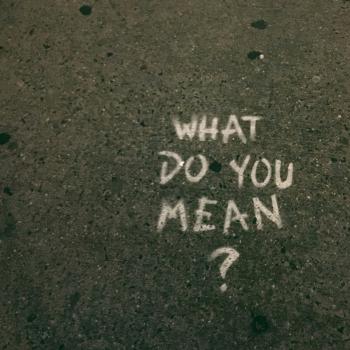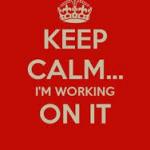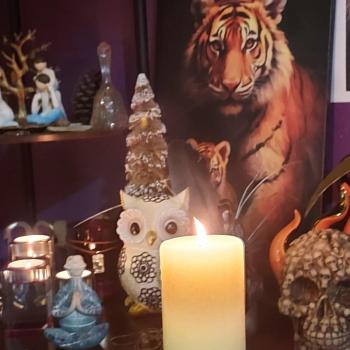Editors' Note: This article is part of the Patheos Public Square on Homeschooling and Public Education. Read other perspectives here.
The debate between public education and home education is often cast in Manichean terms. Advocates of one portray advocates of the other as unintelligent, sometimes evil—maybe even an affront to God. Consider, for example, how the late Chris Klicka, former senior counsel at Michael Farris' homeschool advocacy organization HSLDA, said that parents who put their children in public school "sacrifice their children," comparing such parents to Israelites in Ezekiel 16:20-21 who "slaughtered [their] children" by fire. On the flip side, look at how a progressive Christian theologian like Tony Jones called for the "death" of homeschooling, accusing homeschooling parents of forsaking their "(God-given) role as a missional member of society."
With advocates' rhetoric pumped up on steroids like this, it is no wonder that people from all walks of life can feel defensive about the educational choices they make for their children. No matter how carefully they make their choices, there is always someone pointing a finger at them and declaring their child is going to hell.
But here is the rub: there is no perfect educational system. There is no educational system you can use that will have a guaranteed outcome for your child. I have seen homeschool kids grow up to become raging alcoholics. I have seen public school kids grow up to become sober, loving parents. You never know what is going to happen.
In this post, I want to eschew all the extremist rhetoric. This is because there are legitimate reasons for choosing both public education and home education. I do not think that one type of education is inherently good and the other evil. That sort of black-and-white thinking is a red herring—a red herring because it distracts us from the real issue. The real issue is: What type of education is best for each individual child? Children themselves should be the starting point.
Consider two stories:
In 2013, fifteen-year-old Jadin committed suicide. The teenager had experienced bullying at his public school for being gay. According to LGBTQ activist Dan Savage, "Jadin asked his parents to homeschool him. He feared turning in the bullies would make things worse." Unfortunately, Jadin was not pulled from school, and he resorted to suicide.
In 2014, seventeen-year-old Leelah committed suicide. The teenager, who was transgender, had found a loving, supportive group of peers in her public school. However, according to Leelah, her parents found her to be an "embarrassment." They pulled her from school to homeschool her, isolated her from her friends, and subjected her to conversion therapy. In despair, Leelah resorted to suicide.
These two tragic stories highlight how the debate about education should not be truncated to a debate between adults and their abstract notions about ideal educational systems. Children—and their very real wants and needs and own voices—need to be front and center in the conversation: What is best for this given child? What does this particular child want? What are this specific child's needs? For some children, public school will be the answer. For other children, homeschool will be the answer. (And for others, private school might be the answer.) The one-size-fits-all mentality that people like Klicka and Jones promote is not healthy. It erases children and what makes them unique.
A one-size-fits-all mentality also neglects another fact that the stories of Jadin and Leelah raise: for some children, certain educational venues are unsafe. This is because child abuse is a serious problem in our world. And child abuse knows no bounds; it transcends all educational boundaries and permeates every type of educational subculture.
In 2014, several individuals and I created Homeschool Alumni Reaching Out, a federally recognized 501c3 non-profit organization dedicated to developing partnerships between homeschooling parents and alumni to make homeschooling better for future generations. One of our projects is Homeschoolers Anonymous, an online platform that features stories from homeschool alumni who often had negative, even abusive, experiences with homeschooling. These stories include experiences of emotional, physical, and sexual abuse. While I personally had a positive homeschool experience (I was homeschooled kindergarten through high school), my work with Homeschoolers Anonymous shows that homeschool communities are by no means perfect. Abuse can happen in homeschooling in the same way that it can happen anywhere else.




